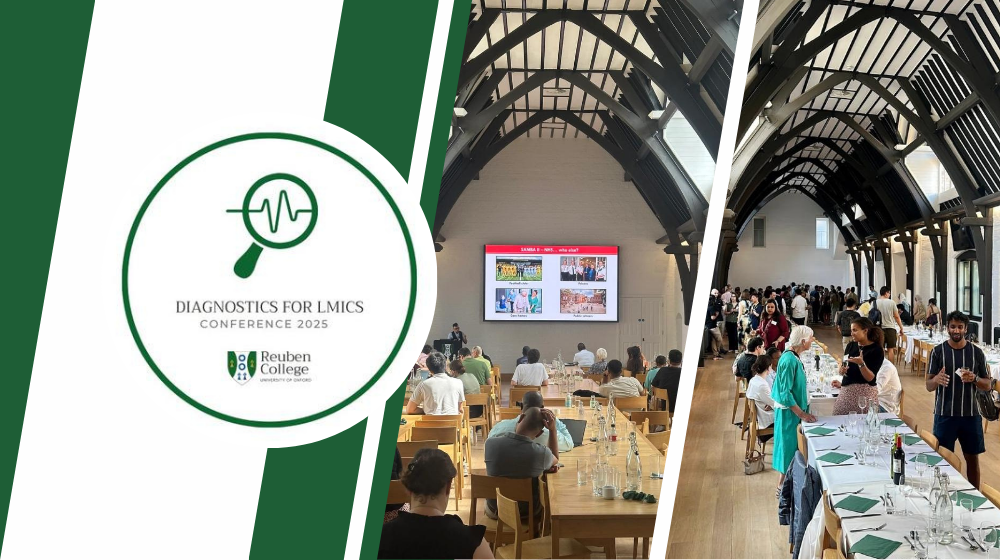This year, Reuben College hosted the third Dx4LMIC Conference, bringing together students and professionals from engineering, medicine, policy, and more. The event offered participants a chance to share insights and experiences from their respective fields, with a focus on the challenges and opportunities of improving medical diagnostics in low- and middle-income countries (LMICs). It was the biggest conference the college has hosted so far, with around 110–120 attendees. The event was very popular and we had to close registration early and start a waiting list.
Across the two days (plus a pre-conference data science workshop), speakers shared insights on a wide range of cutting-edge tools and ideas, from using machine learning to transcribe patient histories, to bioengineering techniques that allow multiple PCR reactions to run in a single well, significantly reducing cost and complexity. We also heard about AI models trained on pulse oximeter data to help detect early patient deterioration in Vietnam, showcasing how diagnostics and digital health are converging in real-world settings. The day before I also ran a pre-conference technical workshop on data-centric approaches to learning machine learning.
Talks on responsible modelling and evaluation were a particular highlight this year, reflecting one of the conference’s key themes. Dr Fu Siong Ng spoke about the value and complexity of clinical data from LMICs and the importance of using such data responsibly. He introduced a method for diagnosing Chagas disease directly from over 2 million ECGs collected from Brazilian patients. We also heard from Reuben’s own James Anibal, who shared the practical challenges of deploying machine learning models in clinical settings. On a broader scale, Professor Bamba Gaye described efforts to scale telemedicine in Africa through crowdsourced data and collaborative strategies. For early-stage PhD students, it's crucial to develop an understanding of the value of clinical data and how to work with it thoughtfully and ethically.
Thanks to a generous contribution from the Software Sustainability Institute to my fellowship, we were able to host 20 PhD students from UCL and UCL-affiliated programmes overnight in Oxford. Combined with the fact that the conference was fully subsidised, this meant we could offer a high-quality, two-day event, including keynotes, poster sessions, and a formal dinner, at little to no cost to attendees. We were also delighted to award two poster prizes, recognising outstanding PhD research presented during the conference.
The SSI’s support not only made this event more accessible but also helped foreground one of its most important themes: the responsible and thoughtful use of clinical data. From early-stage PhD students to experienced researchers, there was a shared recognition that technical progress must go together with ethical, context-aware data practices. We’re grateful for the opportunity to bring these conversations to the forefront and look forward to continuing this focus in future events.


